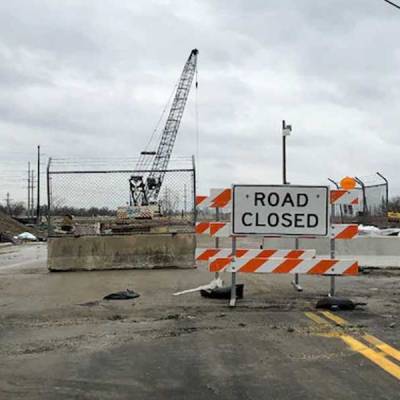- Home
- Real Estate
- Real ´Demon´etisation

Real ´Demon´etisation
The year 2016 began on a positive note for real-estate. The last two quarters of FY16-17 had witnessed an uptrend in the real-estate sector, which had remained largely sluggish for the past few years. The recovery of the sector was triggered by growth across diverse sectors of the economy complemented by market-friendly policy initiatives.
The growth momentum for the sector continued in the beginning of Q3 with the month of October alone recording around 50 per cent of sales for the quarter. These bumper sales volumes reflected in the revenues posted by some companies in Q3, compared to Q2 FY17, while sales for some players remained flat. However, the tepid sales figures exerted larger pressure on the margins of noted players like Indiabulls, HDIL and DLF, whose revenues plummeted rapidly.
When things had started looking positive for the sector, the demonetisation move to ban high value currency (HVC) notes of Rs 500 and Rs 1,000 on November 8, 2016, acted as a detrimental factor for the real-estate sector by putting a spanner in their growth trajectory. For a largely cash-intensive sector, where a majority of the deals are transacted in hard cash, the move to take high value notes out of circulation exerted a negative pressure on margins as sales have fallen in the primary and secondary market. Demonetisation will continue to exert its influence over sales volumes in the short to medium term with a spill-over effect foreseen in Q4FY17.
Market sentiments have been badly hit.
It is expected that home prices will correct significantly in 2017 with the demand for residential units cooling to a greater extent. While the impact of demonetisation would not be aggravated for large real-estate players as they have a large pipeline of unsold project inventories acting as a buffer, smaller players in the business are more likely to face the heat.
The government has initiated several measures to usher in ethical business practices and accountability in a sector that has largely been unregulated till date. Policies like the Real-Estate Regulatory Act (RERA), which came into effect on May 1, 2016, has been hailed as a major policy initiative to bring transparency to a sector whose operations have broadly remained opaque. With a view to rein in shell dealings and fictitious transactions, the government has also legislated the Benami Transaction Act. Another regulation has been announced in Budget 2018 to contain cash transaction in general and particularly for the real-estate sector. The government has proposed to impose penalty of equal amount for cash transaction above Rs 3 lakh payable by recipient. This provision will have a severe blow on the realty sector as it will curtail property transaction.
In the long term, realtors with integrity are expected to survive in the post-demonetisation phase. With a large-scale cash component chucked out of the system, constantly fluctuating prices will no longer be the norm, and an affordability quotient will be accorded with the promise of timely project delivery.
It is believed that in a sector where black money has traditionally played a major role in executing deals, demonetisation was a necessary mandate for ensuring a clean-up of the system. Although short-term operational hiccups are expected as real-estate players come to terms with demonetisation, the domestic real estate sector is expected to record sustained growth and emerge stronger and transparent over the long term.
About the author:
Vijay Agrawal, Executive Director, Equirus Capital, has over 16 years of experience in the infrastructure, pharma, healthcare and IT sectors.
To share your views on this article, write in at feedback@ConstructionWorld.in
With October 2016 alone recording 50 per cent of realty sales for Q3FY16-17, VIJAY AGRAWAL analyses the real impact of demonetisation on the financial performance of top real-estate companies. The year 2016 began on a positive note for real-estate. The last two quarters of FY16-17 had witnessed an uptrend in the real-estate sector, which had remained largely sluggish for the past few years. The recovery of the sector was triggered by growth across diverse sectors of the economy complemented by market-friendly policy initiatives. The growth momentum for the sector continued in the beginning of Q3 with the month of October alone recording around 50 per cent of sales for the quarter. These bumper sales volumes reflected in the revenues posted by some companies in Q3, compared to Q2 FY17, while sales for some players remained flat. However, the tepid sales figures exerted larger pressure on the margins of noted players like Indiabulls, HDIL and DLF, whose revenues plummeted rapidly. When things had started looking positive for the sector, the demonetisation move to ban high value currency (HVC) notes of Rs 500 and Rs 1,000 on November 8, 2016, acted as a detrimental factor for the real-estate sector by putting a spanner in their growth trajectory. For a largely cash-intensive sector, where a majority of the deals are transacted in hard cash, the move to take high value notes out of circulation exerted a negative pressure on margins as sales have fallen in the primary and secondary market. Demonetisation will continue to exert its influence over sales volumes in the short to medium term with a spill-over effect foreseen in Q4FY17. Market sentiments have been badly hit. It is expected that home prices will correct significantly in 2017 with the demand for residential units cooling to a greater extent. While the impact of demonetisation would not be aggravated for large real-estate players as they have a large pipeline of unsold project inventories acting as a buffer, smaller players in the business are more likely to face the heat. The government has initiated several measures to usher in ethical business practices and accountability in a sector that has largely been unregulated till date. Policies like the Real-Estate Regulatory Act (RERA), which came into effect on May 1, 2016, has been hailed as a major policy initiative to bring transparency to a sector whose operations have broadly remained opaque. With a view to rein in shell dealings and fictitious transactions, the government has also legislated the Benami Transaction Act. Another regulation has been announced in Budget 2018 to contain cash transaction in general and particularly for the real-estate sector. The government has proposed to impose penalty of equal amount for cash transaction above Rs 3 lakh payable by recipient. This provision will have a severe blow on the realty sector as it will curtail property transaction. In the long term, realtors with integrity are expected to survive in the post-demonetisation phase. With a large-scale cash component chucked out of the system, constantly fluctuating prices will no longer be the norm, and an affordability quotient will be accorded with the promise of timely project delivery. It is believed that in a sector where black money has traditionally played a major role in executing deals, demonetisation was a necessary mandate for ensuring a clean-up of the system. Although short-term operational hiccups are expected as real-estate players come to terms with demonetisation, the domestic real estate sector is expected to record sustained growth and emerge stronger and transparent over the long term. About the author: Vijay Agrawal, Executive Director, Equirus Capital, has over 16 years of experience in the infrastructure, pharma, healthcare and IT sectors. To share your views on this article, write in at feedback@ConstructionWorld.in
























